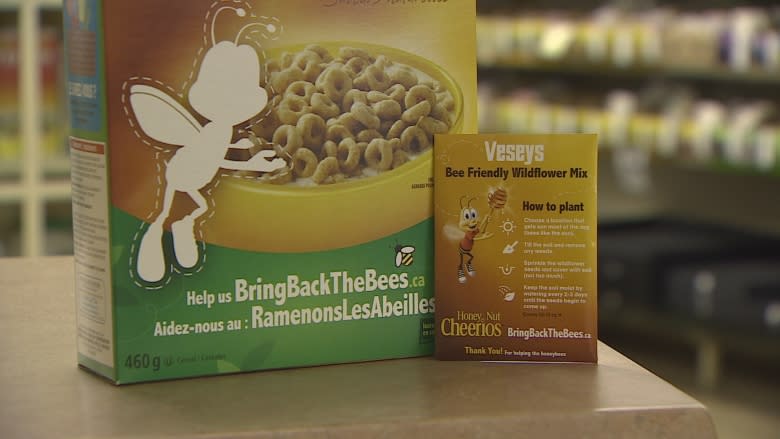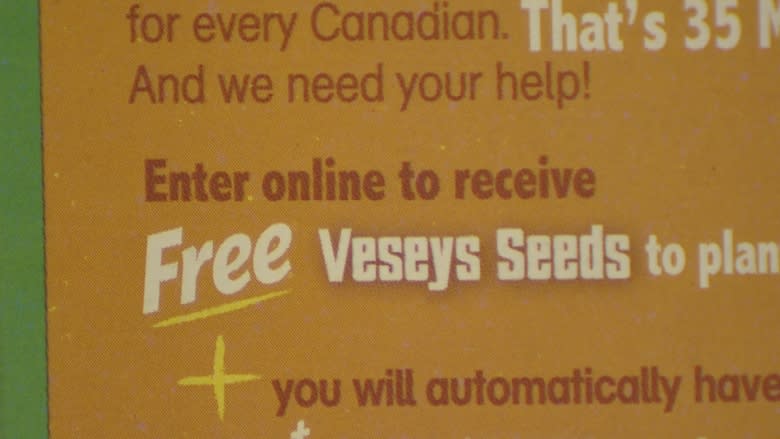Seeds given away in Cheerios promotion may be problematic, horticulturist says
The wildly successful Bring Back The Bees promotion, which gives away packages of wildflower seeds in cereal boxes to bring awareness to the importance of bees as pollinators, could do more harm than good, a Toronto horticulturalist says.
General Mills relaunched and expanded its successful Canadian-based campaign for Honey Nut Cheerios into the United States this year, but Paul Zammit of the Toronto Botanical Gardens says there may be some flaws in it despite the company's best intentions.
"My main concern is not being able to identify what is exactly in the seed packages," he told CBC Toronto.
P.E.I. company Veseys Seeds partnered with General Mills for the promotion and says the mix includes Baby Blue Eyes, Bergamot, Chinese Forget Me Not, Lavender Hyssop, New England Asters, Plains Coreopsis and many others.
Angus Mellish, the seed manager with Vesey's, says a lot of research went into picking which species they sent out.
"We needed ... a very broadly adapted mix. Something that can grow in California, British Columbia, in P.E.I..."
However, Zammit says the common names provided — as opposed to Latin names — could be a problem because they could be used to describe different plants in different regions. Those plants can react very differently from coast-to-coast and may, in certain circumstances, spread rapidly.
"Many of them are self-seeders and that is a concern of how it will behave once it gets into a garden and/or beyond," he said. "Plants and their seeds don't know fence-lines, borders, natural or cultivated spaces," he said.
"Not all plants should be planted in all locations."
But Veseys says the plants aren't harmful.
"In most locations, the seed mixture species will be non-native but not considered invasive," said John Barrett, director of sales, marketing and development with Veseys.
To be invasive, he said, a species has to be non-native and have the tendency to spread and threaten the environmental, economic or social health of an area.
Thousands of seed packets distributed
Many of the seeds are already out there. Last year, the 100,000 seed packages they expected to give away went in a matter of days, which sent Veseys scrambling to get another 100,000 packages to General Mills.
This year, with the expansion into the U.S., the promotion will appear on more than 10 million Honey Nut Cheerios boxes. The Bring Back The Bees website this year says that they are giving away over 100 million seeds to Canadians.
And in Canada, Veseys says it expects to hand out as many as 700,000 wildflower seed packages this year. The company has already given two million packages to General Mills.
Despite concerns about the seeds offered through the program, Zammit says that he likes that the campaign is getting families talking about pollinators like bees.
"It's encouraging and reminding us that we have the opportunity to be able to do things to use our backyard, balconies and these outdoor spaces to help to support pollinators," Zammit said.
He recommends that those who want to help bees go to their local flower societies or flower supply stores to see which flowers would work best in the area.
"If you want to do something, absolutely, let's all do something," he said. "But do a little bit of research as to what you're choosing to plant."




